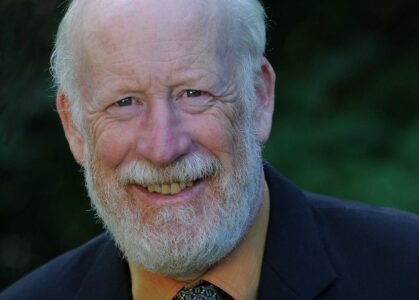City Finance Committee Discusses Water Rates
Rossland politics started to get back into the swing of things after a holiday break on Tuesday evening with a meeting of the city’s finance committee at Esling Park Lodge.
Members of the finance committee, along with a number of property owners around town, showed up to talk about their concerns about what some felt were inequities in the city’s water rates.
The evening’s discussion centered around the various factors that go into calculating the water rates and the impacts that rates have on various types of residents and in particular Rossland’s seniors. The people most concerned about the rates live in apartment buildings such as Esling Park Lodge, which are designated as apartment buildings as opposed to other multi-unit buildings around town such as the Nickelplate or Leroi–buildings which have been designated as strata units. Esling Park Lodge, as an apartment building, is governed by provincial legislation as to how much they can raise the rents each year where strata units are free to set the rates however they like.
The strata units are not as impacted by the water rates, while the buildings designated as apartments which are limited to a maximum rent increase of 3% a year could potentially lose out and not be able to recover costs if utility costs were to rise more than 3% in any given year.
The way the rents are set up is that the building owner is invoiced because there is just one connection to the building. The building owner (in the case of Esling Park Lodge, a non profit society) has to incorporate all the utility bills that they get, including water, sewer, electricity and cable TV into a tenant’s rent. With provincial legislation limiting them to a 3% increase per year, if the rates go up more than that, the building owner has to absorb the increase. Many of the owners who attended the meeting on Tuesday night have tenants who are seniors on fixed incomes, so it puts them in a tight squeeze which was the basis of the concerns aired during the meeting.
Chairman of the Finance Committee Laurie Charlton commented on the meeting and the next steps to be taken.
“We’ll look at what options we have next. We talked quite a bit about water meters and how that would resolve a lot of the problems that we have during this transition period as we’re trying to encourage people to put in water meters, but 85% of the connections in town are still not metered. Once everybody is metered then it becomes pretty straightforward. There will be a base rate and then usage fees on top of that, the same as electricity or natural gas. That should help with conservation as well.”
The policy to move the city towards water meters over a three year period was adopted by council last year, with an incentive system so that those household that installed water meters received a slightly lower rate. The city’s calculations showed that a typical homeowner with a water meter would pay approximately $100 less per year than homes without a meter. Last year a single family residence paid $322 for their water.
Council will now refer the matter back to staff, instructing them to come up with various options to determine how to best deal with the situation before the next finance committee meeting, set for January 22nd.

























